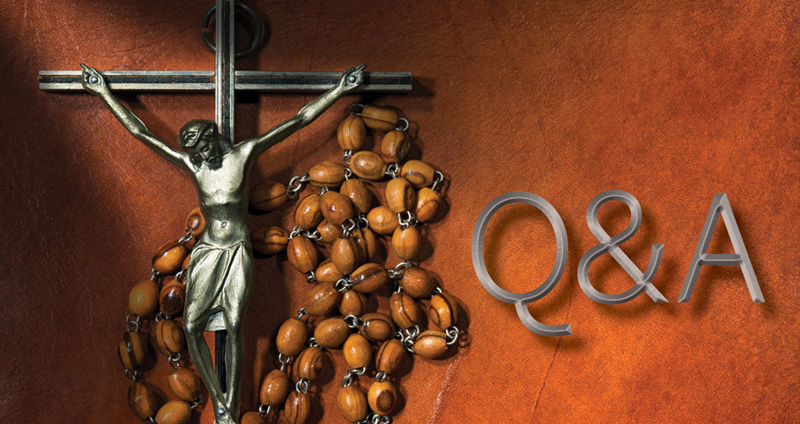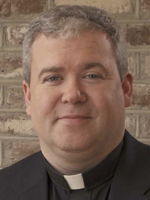
Q: Why do we have incense at Mass? Sometimes it makes it really hard to breathe. (Charleston, SC)
A: Incense can be used for solemn occasions but it should be used with prudence and temperance. Some parishes even announce beforehand what Masses will have incense, and this seems to be greatly appreciated by people with sinus problems or allergies.
With this caution given, however, we shouldn’t forget the rich symbolism of this ancient biblical practice. It can be a powerful ceremonial within Mass or other celebrations and can also give us some helpful reminders in our discipleship.
For example, the burning of incense represents our self-sacrifice to God. As St. Paul tells us: “I appeal to you … present your bodies as a living sacrifice, holy and acceptable to God, which is your spiritual worship” (Rom 12:1). The incense imitates our prayers moving up toward God, as reflected in the biblical account: “And another angel came and stood at the altar with a golden censer … and the smoke of the incense rose with the prayers of the saints from the hand of the angel before God” (Rv 3:4).
These quotes from the Bible help us understand the deep spiritual meaning of incense and its possible benefit to us in our worship of God.
So, if you see a burning censor, breathe in your nose and out your mouth, and do your best to use the incense as a way to draw closer to God.
Q: How do I get my son back to the Church? (Charleston, SC)
A: This question reflects the heartache, anxiety and concern of many Catholics who practice the faith as best they can and who have loved ones who have left the Church for one reason or another. Regrettably, there is no easy answer or even one constant response for every loved one.
There is hope, however, and here are a few steps that might help:
First, continue to pray. I know it may seem fruitless at times, especially when “it seems not to be working” and our hearts are heavy, but stay the course. God’s grace does more within the human heart than we could ever see or imagine. Remember, St. Monica prayed 10 years for her son, Augustine, and not only did he return to the Christian faith but he became a great saint.
Second, possibly evaluate your own discipleship. As experts would say in marketing, “What product are you selling?” If there was a poster board of your own discipleship, would people “buy the product”? This doesn’t mean we have to be perfect or that we have to blame a loved one’s lapse in faith on our own moral failings, but it does help us to stay focused on our own discipleship and self-aware of our struggles to give a credible witness. We can ask ourselves: How do we reflect a life in Jesus Christ? Is it appealing?
If someone sees us constantly sorrowful, mean-spirited and ready to judge, then we shouldn’t be surprised that they take a pass on the faith we supposedly live. The other side is true as well: If someone sees us joyful even when things are tough, kind, and compassionate to others, then the faith might become more appealing.
Third, listen to your loved one. Don’t listen just to respond, but listen in an effort to really understand. Sometimes people have legitimate concerns, hurts, or objections and they need someone who will show them patience and understanding. Most people will not open up, especially in areas of faith, unless they know that the other person will respect and guard their beliefs (or non-beliefs) and legitimately honor their questions.
Fourth, keep doing all the above. These steps are not a guaranteed cause-and-effect. Even if you do all of them well, it doesn’t mean a loved one will return. It does mean, however, that you’re providing a strong witness and an honest forum for them to hear your answers, see your love and respect, and know where they can turn when they might be ready to return to the practice of the faith.

